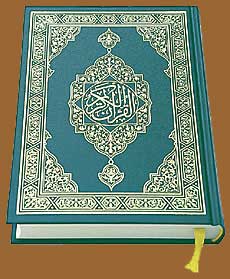
Islam is revealed to the mankind for their blessing (rahmatan li al-‘alamin). This brings a consequence that every single Muslim is an agent for a social interaction and change towards establishing a prosperous society in the world as well as in the hereafter (al-qasas: 77). The notion of falah or sa ’adah in Islamic economics derived from this version of the Qur’an as found in the bulk of economics literature makes the material purposes of economic and business activities integrated with attaining the spiritual heights in the hereafter, as an ultimate aim.
This notion may also be associated with the notion of amanah, as propounded by Hasan. for instance. He accentuates the conversion through the amanah concept from ambitious attainment of a Muslim in socio-economic activities into a spiritual height by achieving eschatological welfare in the hereafter. In relation to macro-perspective, the notion of ethics may be defined as equal to honourable moral precept, which illustrates the mission of the Prophet (pbuh) being sent to the world. He said:
“Truly, I was sent only to perfect the honourable moral.”
Elaboration of this perspective of ethics is generally found in the works below category of economic theory and methodology. Under this category, economic behaviour is also discussed. There are teens of studies found in the database under consideration. Among those literature, ethics is well elaborated in Naqvi’s Ethics and
Economics (1981) and Islam, Economics and Society (1994).
Wednesday, December 02, 2009
Trade and Business Ethics in Islam
Posted by Romi Adetio S at 3:27 AM
Labels: Islamic Economics
Subscribe to:
Post Comments (Atom)


3 Comments:
Mashallah very helpful information
Mashallah very important site and helpful knowledge, keep it up!
Saudara Romi,
But has the "ihktisad" [econmics] of the
[1] mercantile period ie. trading, commerce,through caravans been properly and accurately described? say Makkah period of the Prophet.
[2] al madinah period of city-state trading, commerce, which initially, capturing the Makkah caravans has been properly and accurately described and is it still mercantilism?
[3] when al madinah later became dar al Islam ie. nation state and trading, commerce spread all over the lands and extending into Christians and non-Christian-non-Muslim lands as far as China and South East Asia ....what has become of mercantilism.
[4] letter of credits, bill of exchanges, gold dinar and silver dirham, and depositories of gold and silver, souks, bazaars, takaful, sukuk(?). partnerships, venture capital ...
began to be developed ...
[5] was there a Banking System but Lending and Borrowing existed long before ... how so ?
So, please Muslim scholars go and study these things and write scholar works so that we do not confuse Modern Liberal Capitalism and its derivative "Islamic Capitalism" to be norm and espoused values of Muslim "economics".
Post a Comment